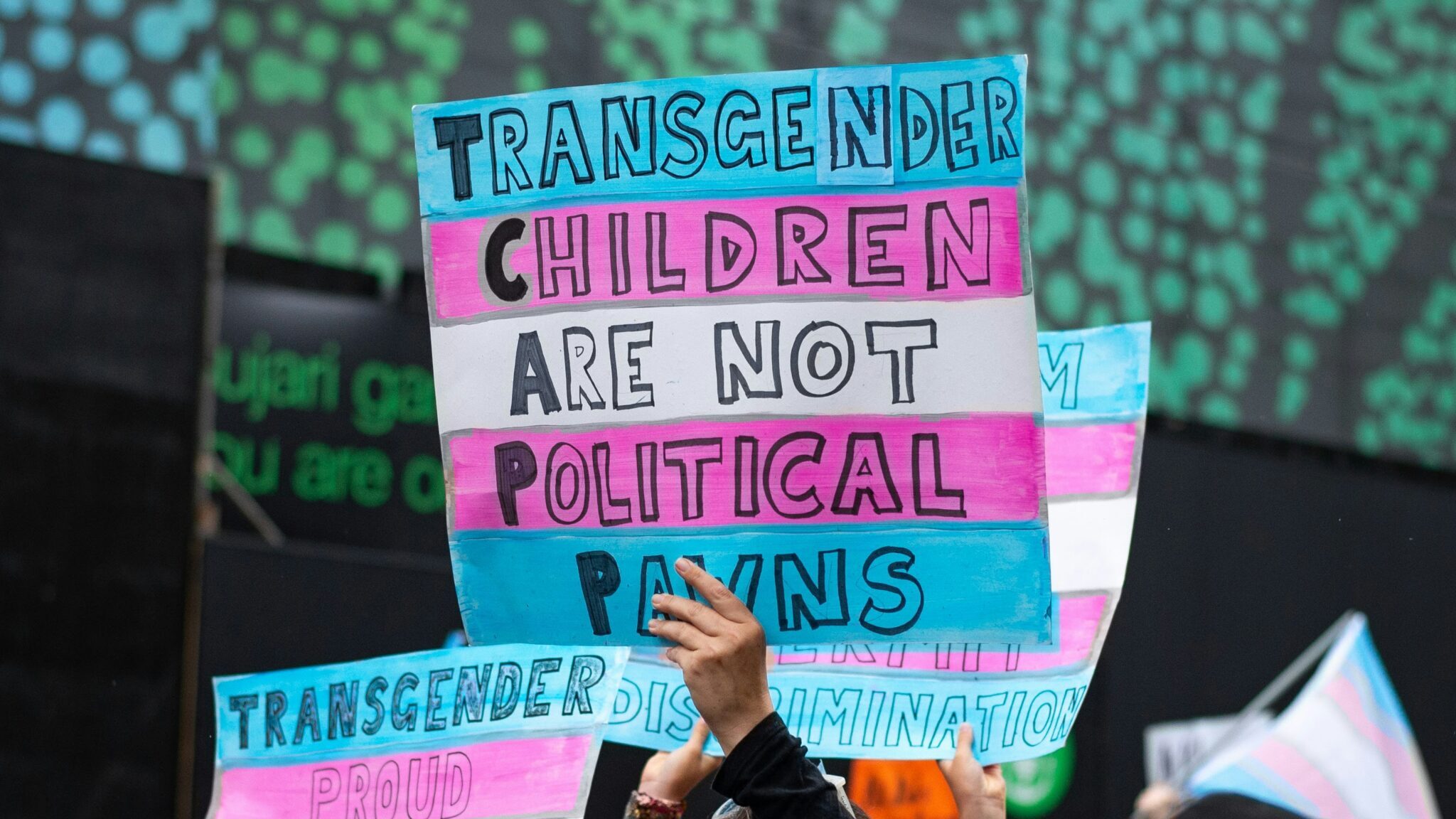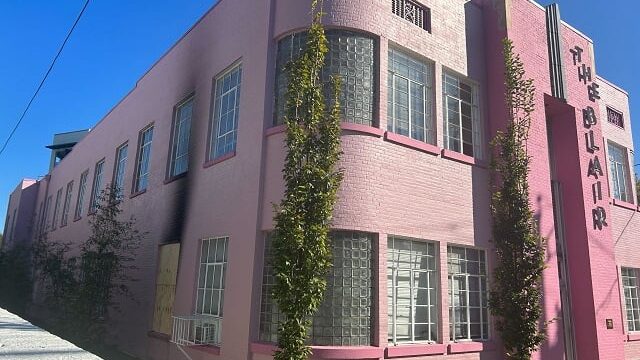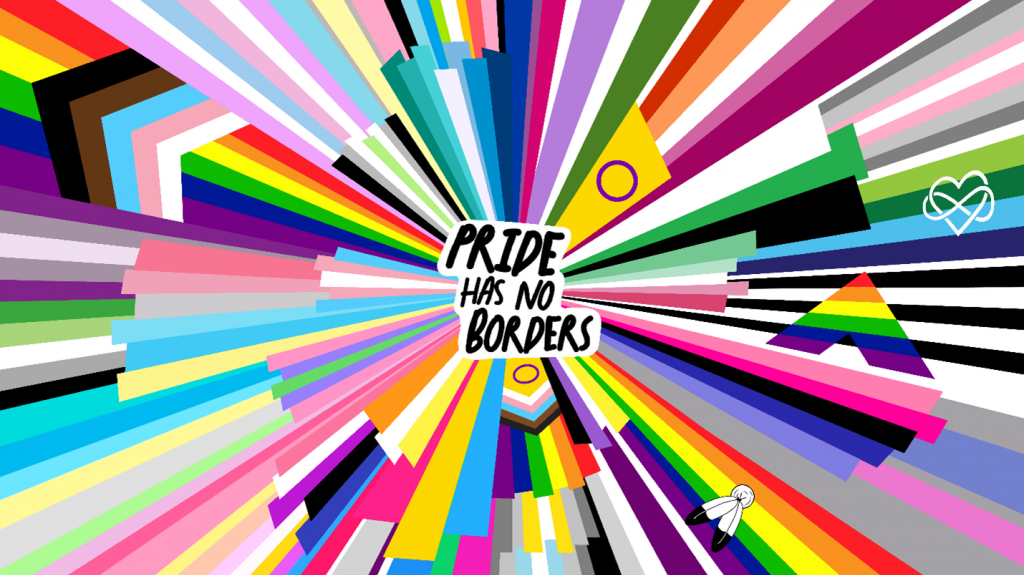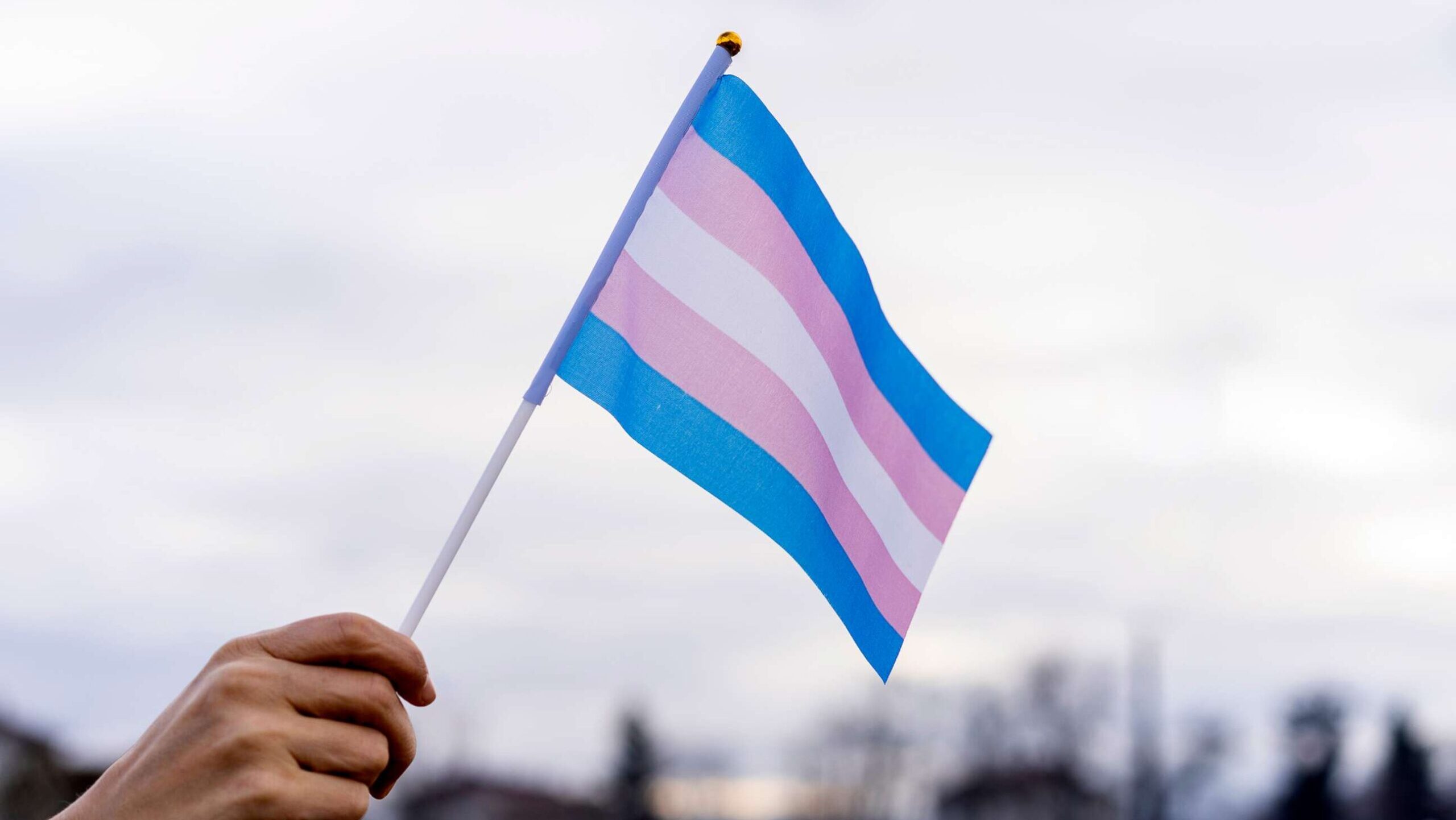Philadelphia unveiled its first mural celebrating transgender and gender-nonconforming people last week.
The mural, “We Are Universal,” was created by the artist Kah Yangni in collaboration with the residents of Morris Home, the only residential recovery program in the country that offers services specifically for trans people, according to its website.
The 2,200-square-foot mural features bright colors, flowers, a butterfly and the faces of two Morris Home residents.
Yangni, who uses gender-neutral pronouns, said they drew inspiration from a photoshoot that they did with the residents and the photographer angel shanel edwards in Bartram’s Garden, a public garden and National Historic Landmark in Philadelphia, and from interviews with the residents.
Some of the residents’ quotes are included on the mural, which reads, “we’re trans,” “we’re survivors,” “we are joyful,” “we feel rage” and “we are universal!”
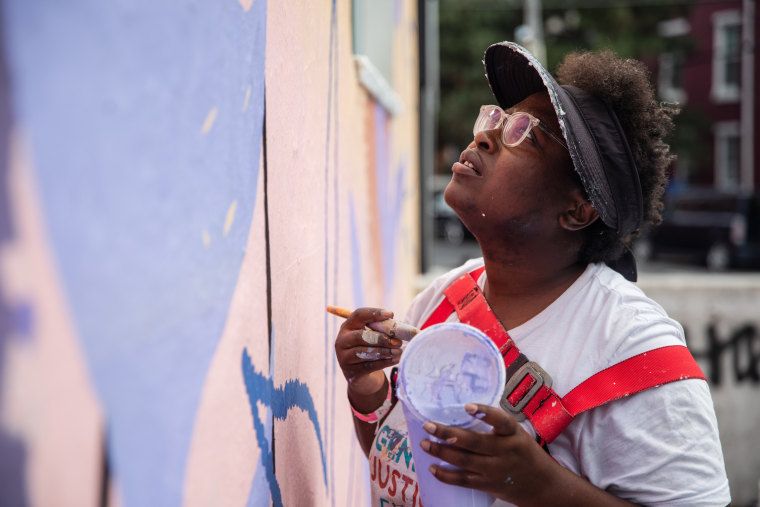
“I picked the words that describe people at Morris Home, but also the broader community of trans folks and folks in recovery,” Yangni said. “I tried to pick things I felt like a lot of people could connect with.”
Yangni said they also wanted to create something positive that instilled a sense of warmth and comfort in trans people.
“I think it’s really awesome to be trans,” they said. “I’m really proud of what I am, but I know that we live in this world where not everybody thinks that, and people in our community go through a lot. So I wanted to make something that would feel like a huge hug and acknowledges some of the things that are hard about our lives, but ultimately is really loving and really warm and says, ‘We’re here, and we exist.’”
They said that during the design process, someone suggested taking inspiration from a well-known quotation from the novelist and activist James Baldwin and using the phrase “To be Black and trans is to be in a constant state of rage” on the mural.
But Yangni said they wanted to balance the hard parts about being trans with joy.
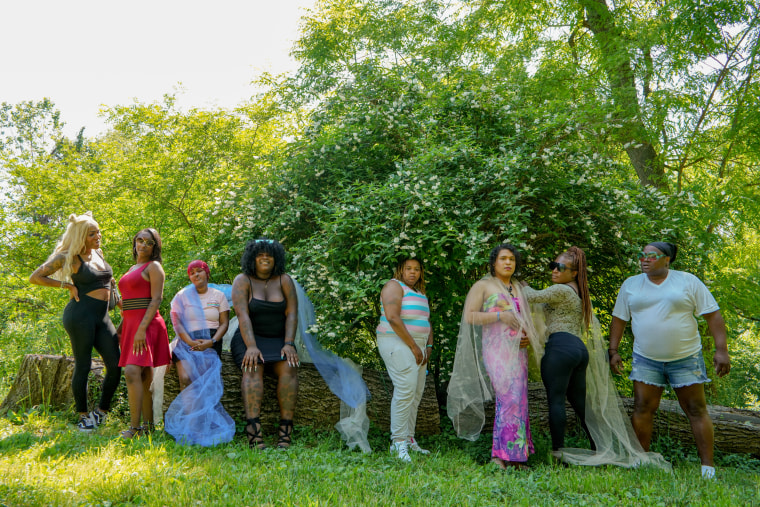
“It’s really hard to see death and destruction all the time and we’re about more than that,” Yangni said. “I wanted there also to be a story out there about how great we are.”
“We Are Universal” is a joint project of Mural Arts Philadelphia and the City of Philadelphia’s Department of Behavioral Health and Intellectual disAbility Services, which supports Morris Home.
The dedication for the mural, which took place last week, also kicked off Mural Arts Month, which will take place in Philadelphia throughout October and includes mural dedications, panel discussions, artist spotlights and walking mural tours, among other activities. The theme of this year’s Mural Arts Month is resilience.
Mural Arts Executive Director Jane Golden said during the dedication for “We Are Universal” that murals, in addition to being beautiful, are meant to address social issues.
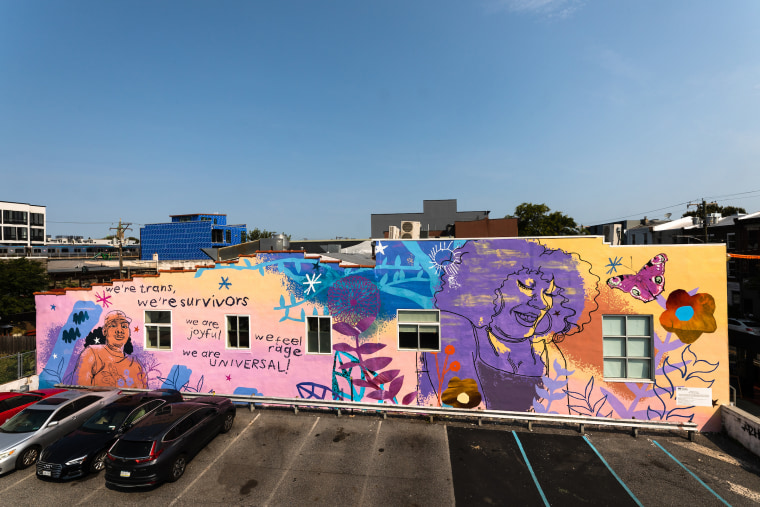
“I think that the mural obscures the power behind it,” she said, according to WHYY, a public radio station in Philadelphia. “For every project that people see, like the one we’re standing in front of, that’s two years of work with Morris. It is workshops, it’s programs, it’s very deep, meaningful, hard conversations that were really both sorrowful and incredibly triumphant.”
Yangni said that they hope there will be a wave of queer murals in other cities to help queer and trans people feel seen.
Trans people are often “in the background” they said, “or maybe on the internet, and it’d be nice if we were in real life, too.”
The post appeared first on NBC News.

